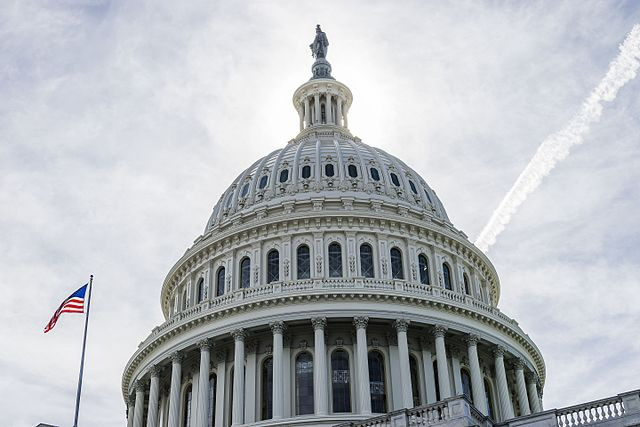Congressional leaders have introduced a bill poised to fund several government departments for the fiscal year 2024, aiming to circumvent a looming partial government shutdown by March 8. The comprehensive 1,050-page legislation encompasses six essential bills that cover a wide array of departments, including Agriculture, Justice, Commerce, Energy, the Interior, Transportation, and Housing, as well as the Food and Drug Administration (FDA).
Both Republican Speaker Mike Johnson and Democratic Senate Majority Leader Chuck Schumer swiftly claimed victories in the wake of the bill's announcement. Johnson's office highlighted the proposed budgetary reductions to agencies often criticized by conservative factions, such as a 10% decrease in funding for the Environmental Protection Agency (EPA) and notable cuts to the FBI and the Bureau of Alcohol, Tobacco and Firearms (ATF). Moreover, the legislation aims to curb the Department of Justice's ability to target parents voicing concerns at school board meetings, portraying this as a win for free speech.
Contrastingly, Schumer emphasized the bill's commitment to fully fund the federal food program for women, infants, and children (WIC) and underscored the inclusion of significant infrastructure investments. Both leaders also pointed to enhanced support for U.S. military veterans as a mutual achievement within the bill.
The bill's unveiling marks a pivotal moment in Congress's efforts to finalize funding for the fiscal year, which commenced five months ago. The proposed package, exceeding $450 billion, aims to sustain government operations until early fall, thereby avoiding a shutdown under the stopgap plan recently signed by President Biden. This legislation also reflects the culmination of intense negotiations between the GOP-controlled House and the Democrat-dominated Senate, which had previously presented vastly differing bills.
Republicans have leveraged their slim majority in the House to advocate for substantial spending reductions and the implementation of conservative policies. In contrast, Democrats have resisted these demands, leading to protracted disagreements and the repeated extension of fiscal year 2023's funding priorities.
The discord within the House GOP, particularly among hardline conservatives, has notably disrupted legislative proceedings and even resulted in the unprecedented ouster of former Speaker Kevin McCarthy. This internal strife has complicated the appropriations process, with GOP hardliners advocating for a yearlong stopgap funding bill to enforce automatic spending cuts if their conditions are not met.
Despite these challenges, the release of the funding bill signifies a step towards resolution, though the battle to finance the remaining government sectors looms large. With military spending and homeland security yet to be addressed, the path forward is fraught with policy disagreements that could further test the fragile bipartisan cooperation.
As the deadline approaches, the House GOP leadership plans to expedite the legislation's passage, potentially relying on Democratic support to meet the two-thirds majority required under a suspension of the rules. This strategy underscores the necessity of bipartisan collaboration to navigate the current political landscape and secure the government's continued operation.





